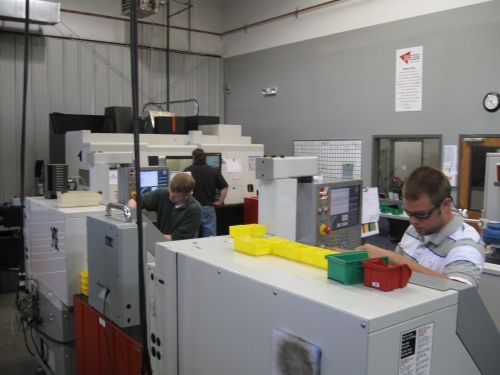What is Your Shop’s Sales per Employee?
The Manufacturing Performance Institute recently published the results of a study of manufacturers that compares self-identified “world-class” manufacturers with those that do not perceive themselves this way.
Share




.png;maxWidth=45)
DMG MORI - Cincinnati
Featured Content
View More



Autodesk, Inc.
Featured Content
View More

The Manufacturing Performance Institute recently published the results of a study of manufacturers that compares self-identified “world-class” manufacturers with those that do not perceive themselves this way. The study’s comparison covers dozens of metrics, but one that I found interesting was sales per employee. The world-class manufacturers reported median annual sales of $225,000 per employee, while the non-world-class respondents reported median sales 18 percent less than that, or about $184,000 per employee. Across all the manufacturers together, median annual sales were $200,000 per employee.
How do these figures compare with the sales per employee in your shop?
Profit per employee is (of course) something different. Extracting profit from sales is a function of the cost of goods sold. Between world-class and non-world-class plants, the survey found a moderate difference in the level of this cost. But more significant was the way that the components of this cost differed. Material is a higher percentage of the cost of goods sold in the world-class facilities — median 60 percent versus median 50 percent in the non-world-class facilities. Conversely, labor and overhead consume higher percentages of cost in the non-world-class plants.
A little reflection reveals what these percentages show. Namely: The world-class facility is able to get more work done with every given unit of labor and overhead — thus converting more material per year into finished goods.
For insight into shops that aspire to be efficient in precisely this way, see our Lean Manufacturing Zone. (The photo above was taken at one such shop, Wedge Manufacturing.)
Related Content
-
Can Connecting ERP to Machine Tool Monitoring Address the Workforce Challenge?
It can if RFID tags are added. Here is how this startup sees a local Internet of Things aiding CNC machine shops.
-
Finding the Right Tools for a Turning Shop
Xcelicut is a startup shop that has grown thanks to the right machines, cutting tools, grants and other resources.
-
DN Solutions Responds to Labor Shortages, Reshoring, the Automotive Industry and More
At its first in-person DIMF since 2019, DN Solutions showcased a range of new technologies, from automation to machine tools to software. President WJ Kim explains how these products are responses to changes within the company and the manufacturing industry as a whole.






































